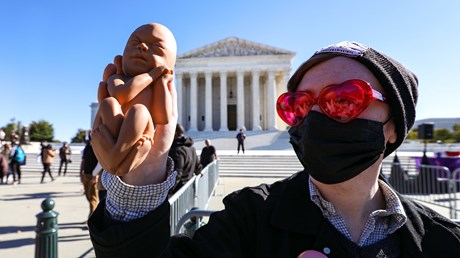As the Supreme Court hears arguments on abortion law, bad rulings should get tossed out for good. So should the “surviveability” standard.

This week, the United States Supreme Court will hear arguments about the state of Mississippi’s abortion law. Yet both sides know what’s really at stake: At question is not only whether the Constitution guarantees a right to abortion but also whether the state’s interest in protecting fetal life is determined by the child’s ability to live outside the womb.
This is the moment not just for the Court but for all of us to see that viability is no way to judge the worth of a human life.
In Planned Parenthood v. Casey, the Court kept the core of Roe v. Wade. However, to determine the state’s interest in protecting fetal life, the Court replaced the arbitrary measure of trimesters with a “viability” standard—a scientifically determined idea of whether a child could survive outside the womb.
This idea has led to decades of political and legal debate, but it’s also a cultural issue. Is it right to determine rights and personhood based on such a standard? And how does that affect the way we view human life inside and outside the womb?
In defense of the pro-life position, New York Times columnist Ross Douthat summarizes a key pro-choice assumption enshrined in our law for almost 50 years: that “personhood is often associated with some property that’s acquired well after conception: cognition, reason, self-awareness, the capacity to survive outside the womb.” But this logic cannot be sustained with consistency.
“If full personhood is somehow rooted in reasoning capacity or self-consciousness, then all manner of adult human beings lack it or lose it at some point or another in their lives,” says Douthat. “If the capacity for ...
from Christianity Today Magazine
via


.gif)

.gif)
.gif)
